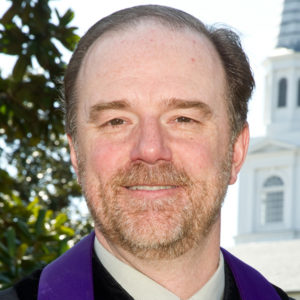 A few days ago I posted on my Facebook page “Ten bogus ideas my white culture taught me growing up.” Actually, it was a list of things both taught and caught.
A few days ago I posted on my Facebook page “Ten bogus ideas my white culture taught me growing up.” Actually, it was a list of things both taught and caught.
- Life owes me my status.
- American history has no significant dark side.
- Jesus looks Swedish.
- There is no downside to power.
- If someone is behind in life, they haven’t tried hard enough, or there’s something wrong with them.
- Safety decreases as the number of black people increases.
- Everyone gets treated the same at the bank and in the courtroom.
- W.E.B. DuBois, Zora Neale Hurston and Howard Thurman never existed.
- Passion in worship is OK, but only in small, measured doses.
- Happy Birthday must be sung slowly.
I posted the list entering a weekend of observances across the nation related to Martin Luther King Jr. Day (a few days after what would have been his 90th birthday). Ironically, some of the people who have responded to the post assumed from my list that I had been raised in a racist family. That was not the case. My parents were progressive on racial issues. On more than one occasion they told friends of mine to leave our home after they had used a racial slur.
My list is not about instruction; it’s about socialization. It’s not about some unfortunate backwater; it’s about the ocean in which I lived my life, an ocean not that different from the one in which my boys grew up 30 years later.
Items 1-4 speak to the assumption that white culture is superior. Nobody taught me that; I caught that. My boyhood Jesus was white, because. . . well, how could he have been other than white? Nobody ever said, “Jesus was white.” But had someone proposed a more accurate portrayal of a darker skinned Jesus be placed in the baptistry, all hell would have broken loose at church.
“Make no mistake, we build more white ghettos every day.”
Nobody ever said my public high school was superior because it was over 90 percent white, but when the Nashville school board threatened to send us to a majority black school, all hell absolutely did break loose. Message caught: What we have is better, and we are entitled to it.
Items 5-7 reflect the common white assumption that black culture and people are deficient. Most white Americans have learned not to profess that as a belief. But when we stand opposed to any remedy that takes into account that descendants of slaves did not, and still do not, begin the economic, educational and social race at the same starting line, our children catch the concept: “Oh, I see, if blacks are behind and no accommodation needs to be made in the race, then there’s something wrong with them, and something right about us, since we’re ahead.”
Items 8-10 speak of my own cultural deprivation. Eduardo Bonilla-Silva, in Racism without Racists, uses Joseph Barndt’s concept of a “white ghetto.” By this he doesn’t mean a forced isolation, but rather the deprivation that comes from building walls around ourselves. And make no mistake, we build more white ghettos every day. As Richard Rothstein notes in The Color of Law, most American cities are now more segregated than they were in the 1920s, not less.
My experiences in Louisville, Kentucky, first as a pastor with Empower West and now as a professor at a historic black college, have shown me just how much I have missed learning – not just about racism, but about life – by having allowed myself to be walled off from African-American theology, literature, ideas and history. Being more a part of black culture has made me a better Christian, a better thinker and a slightly less stiff human being.
My white sisters and brothers in the Church of Jesus Christ, my new career in black space has blessed me with faith, ideas, laughter and joys that most of us seldom experience. As we honor the memory of the Rev. Dr. King, don’t pity me for the world I grew up in. Pity us all for the ghettos we still live in.
